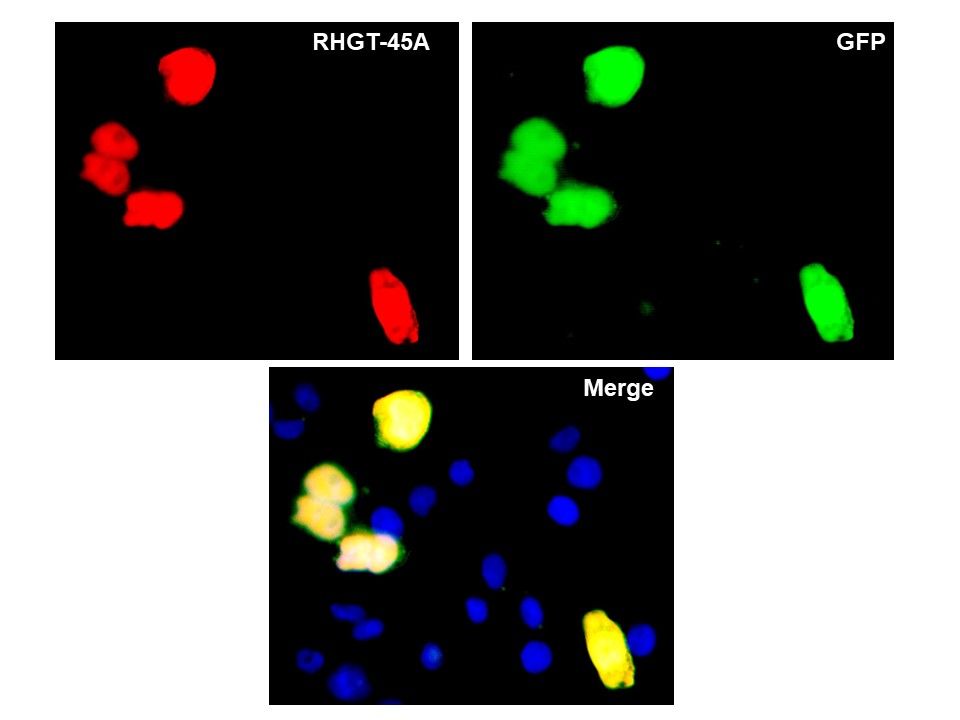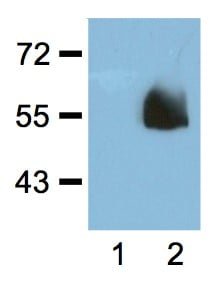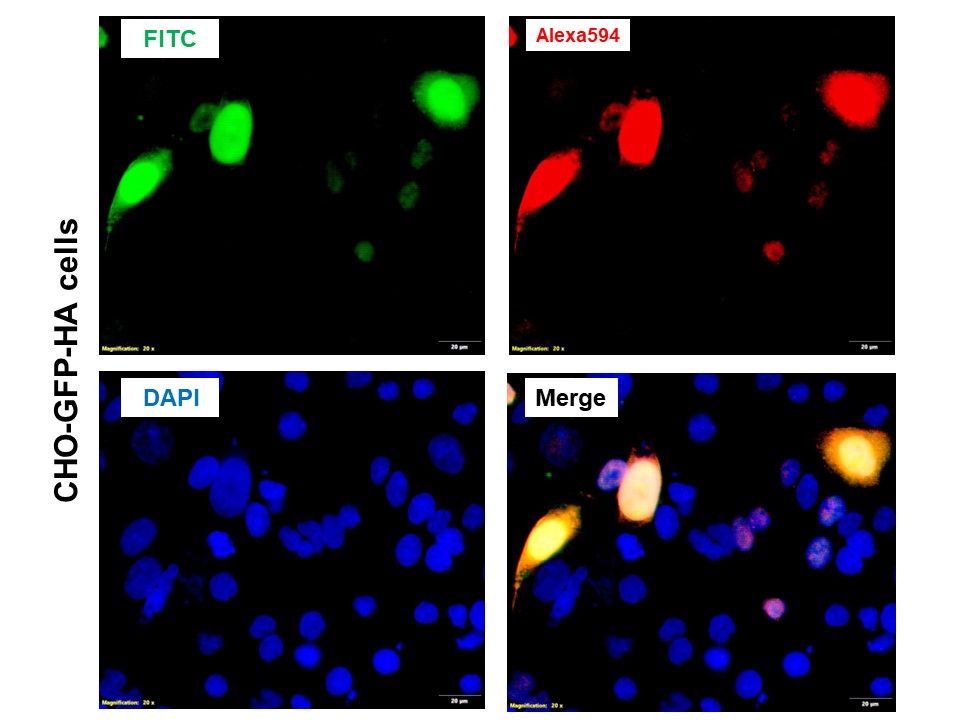Showing all 3 results
HA tag antibodies
The HA tag is a widely used epitope tag derived from the human influenza hemagglutinin (HA) protein, consisting of the amino acid sequence YPYDVPDYA. It is commonly used in molecular biology for the detection, purification, and analysis of recombinant proteins. The HA tag enables easy identification and tracking of proteins in various experimental systems, and it is often used in Western blotting (WB), immunoprecipitation, and immunofluorescence (IF) due to its high specificity.
In Western blotting, HA-tagged proteins are detected with anti-HA antibodies, allowing researchers to assess protein expression levels and verify successful tagging. The HA tag antibodies available on your website are also suitable for use in immunofluorescence (IF) and immunohistochemistry (IHC), providing the ability to localize HA-tagged proteins within cells and tissues. This makes the HA tag a valuable tool for protein tracking, interaction studies, and functional assays.
The HA tag is particularly useful because of its small size, which minimizes disruption to the function or localization of the tagged protein. It can be incorporated at either the N- or C-terminus of proteins without significantly affecting their biological activity. This flexibility, along with the availability of highly specific anti-HA antibodies, makes the HA tag a versatile tool in a wide range of research applications, from protein expression studies to exploring protein-protein interactions and protein trafficking within cells.
| target | type | reactivity | applications | ||||
|---|---|---|---|---|---|---|---|
| 2742 | HA tag | mouse monoclonal (HA.C5) | other | WB ICC ELISA | |||
| 6395 | HA tag | rabbit polyclonal | other | WB ICC ELISA | |||
| 9232 | HA tag | chicken polyclonal | other | WB ICC ELISA | |||

ICC/IF with antibody [6395] : Immunofluorescent analysis of 4% paraformaldehyde (PFA)-fixed permabilied, with 0.1% Triton X-100 in CHO cells transfected with GFP-HA constructs labeling with HA antibody at 5 µg/mL, followed by Donkey Anti-rabbit IgG (H&L), Alexa 594 conjugated antibody at 2.5 µg/mL (red). Nucleus was counterstained with DAPI (blue).

WB with antibody [2742] : 1:1000 (1µg/mL) Ab dilution probed against HEK293 cells transfected with HA-tagged protein vector; untransfected (1) and transfected (2).

ICC/IF with antibody [9232] : Immunofluorescent analysis of 4% paraformaldehyde (PFA)-fixed permeabilized, with 0.1% Triton X-100 in CHO cells transfected with GFP-HA constructs labeling with HA tag antibody at 5 µg/mL, followed by Goat Anti-chicken IgG (H&L), Alexa 594 conjugated antibody at 2.5 µg/mL (red). Nucleus was counterstained with DAPI (blue).



